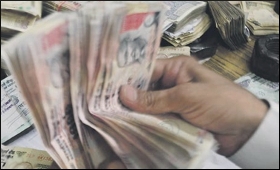Bank credit rose by 13.24 per cent to Rs 97.67 lakh crore in the fortnight to March 29, while deposits grew by 10.03 per cent to Rs 125.72 lakh crore for the period, according to data released by the Reserve Bank of India (RBI) last week.
This is the second consecutive double-digit credit growth after the same had declined to 4.54 per cent in FY17 at Rs 78.41 lakh crore, which was the lowest since 1963. The news sounds good.
According to detail RBI data, loans to the services sector almost doubled with a 23.7 per cent growth in February. This is encouraging. Similarly, credit to agriculture and allied activities, infrastructure, chemical & chemical products and all engineering sectors saw healthy growth. However, credit to industry rose by 5.6 per cent in February, up from an increase of 1 per cent. Also, overall there was a loss in momentum as in the previous fortnight to March 15, credit demand had grown by 14.46 per cent.
In another development, while RBI delivered a second consecutive policy rate cut recently, according to experts, tight liquidity conditions are likely to limit banks' ability to cut lending rates. In contrast, the RBI Governor viewed that the central bank may come out with guidelines on transmission of rate cuts by banks to consumers. He added that RBI will nudge bank CEOs to pass on the benefit of lower policy rates. It will be interesting to see how much of an impact RBI can have in this direction.
Meanwhile, IIP growth dropped to a 20-month low in February in a worrying sign for GDP growth prospects, while retail inflation rose to 3.18 per cent, from a rise of 2.93 per cent in February, but remained within the central bank’s comfort zone, creating room for more interest rate cuts. At the same time, the IMF predicted that the Indian economy will expand at 7.3 per cent this fiscal year, but to secure its growth prospects, continuing with structural reforms is a must.
Published On : 15-04-2019
Source : SME Times

